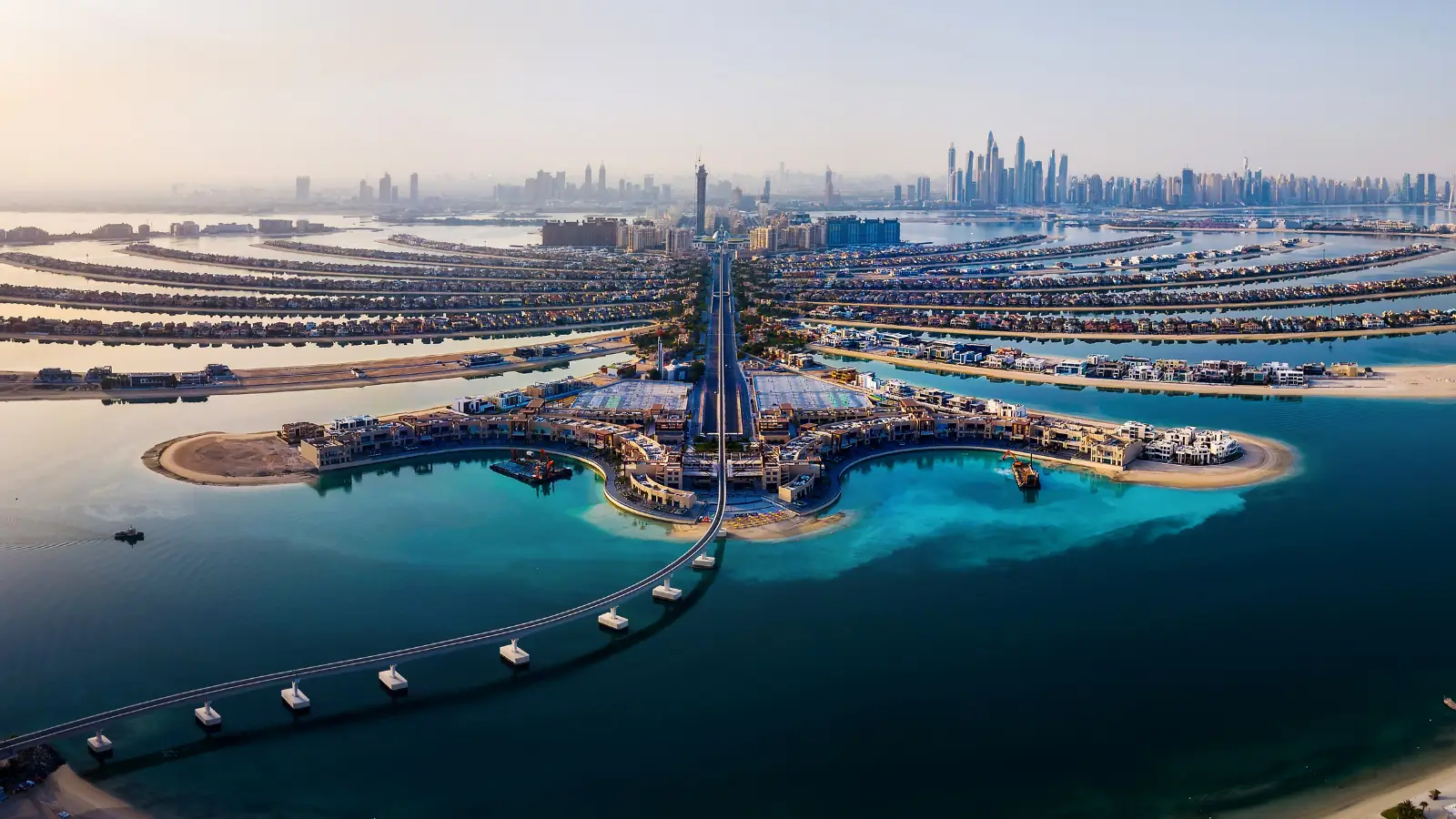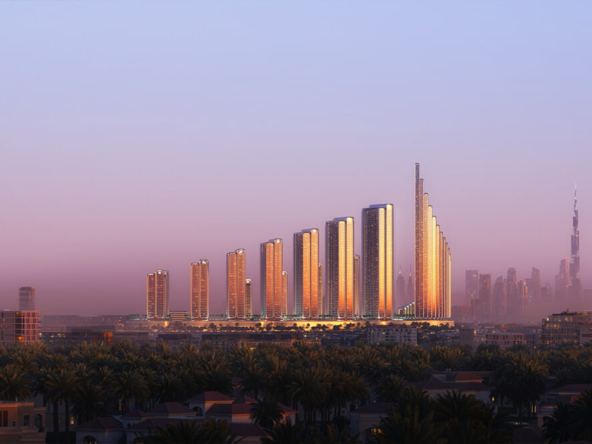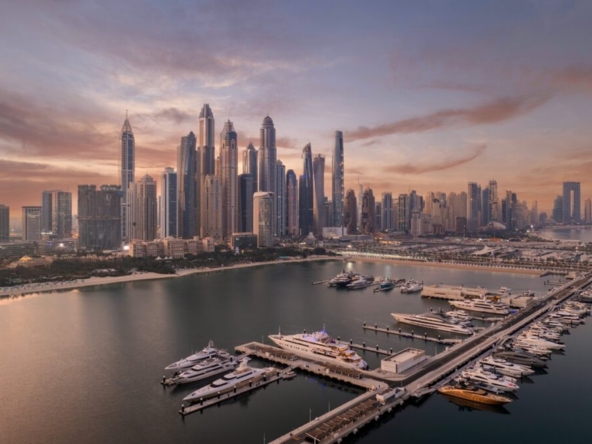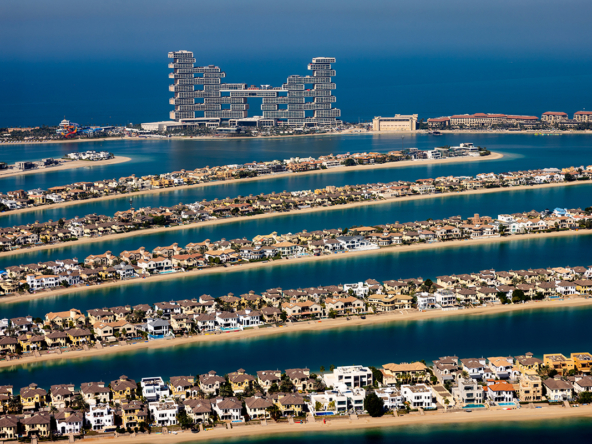Dubai’s real estate market has long been a hot topic for international investors. A city once reliant on oil has diversified significantly, but the question still lingers—is Dubai real estate still tied to oil prices? This comprehensive analysis dives deep into the numbers and patterns to determine whether fluctuations in oil are still influencing property values across the emirate.
Historical Context: Dubai’s Evolution Beyond Oil
Historically, oil revenues laid the foundation for the United Arab Emirates’ rapid development. However, Dubai quickly emerged as a standout emirate that strategically diversified its economy. Unlike Abu Dhabi, which retains stronger links to petroleum, Dubai’s GDP composition has shifted toward trade, tourism, aviation, logistics, and real estate.
By 2023, oil contributed less than 1% to Dubai’s GDP, according to the Dubai Statistics Center. This decoupling raised a key question—can oil still influence the property market if it’s no longer a dominant economic pillar?
The Data Speaks: Correlation Between Oil Prices and Property Trends
We examined Brent Crude oil price trends against major Dubai real estate price indices from 2010 to 2024. Here’s what we found:
-
Between 2010 and 2014, oil prices remained over $100 per barrel. During this period, Dubai experienced a real estate boom, with prices rising sharply in prime areas like Downtown Dubai, Palm Jumeirah, and Dubai Marina.
-
In mid-2014, oil prices began to plunge, falling below $50 by early 2015. Shortly after, Dubai’s property market cooled, with price corrections ranging from 10% to 20%.
-
However, from 2017 onward, oil prices remained volatile, yet Dubai property showed mixed performance. While some areas saw minor dips, others like JVC, Business Bay, and Dubai South witnessed growth, driven by Expo 2020 developments and infrastructure expansion.
-
Post-2020, despite COVID-19-induced oil price crashes, Dubai’s property rebounded aggressively, especially in 2021–2023, fueled by foreign investor confidence, visa reforms, and a pandemic-era safe-haven status.
Conclusion: There is a historical correlation between oil prices and Dubai real estate, particularly during boom-bust periods. However, post-2016, that relationship appears increasingly decoupled.
Key Factors Driving Dubai’s Real Estate Today
1. Diversified Economic Drivers
Dubai’s growth engines now include:
-
Tourism and hospitality
-
Trade and logistics
-
Technology and innovation
-
Global events and MICE (Meetings, Incentives, Conferences, and Exhibitions)
Each of these sectors contributes to inward migration, job creation, and demand for both residential and commercial property.
2. Foreign Investment and Golden Visas
The Golden Visa program, allowing long-term residency for investors, has significantly increased real estate purchases by non-residents. In addition, new initiatives like 10-year visas for retirees and 5-year green visas for skilled professionals have cemented Dubai as a global magnet for talent and investment, independent of oil volatility.
3. Regulatory Transparency and Freehold Ownership
Increased transparency, RERA regulations, and freehold zones have attracted institutional investors and individual buyers alike. These reforms have improved investor confidence, leading to record transaction volumes in 2023–2024.
4. Safe Haven Amid Global Uncertainty
While oil prices fluctuated post-COVID, global political and economic instability drove high-net-worth individuals toward Dubai’s stable, tax-friendly real estate environment. This safe-haven behavior has insulated the market from direct oil-related shocks.
Spotlight on Property Hotspots: Who’s Buying and Where?
Palm Jumeirah & Downtown Dubai
These iconic areas continue to attract ultra-luxury buyers from Europe, Russia, and Asia. Interestingly, price trends here show little dependence on oil, aligning more with global wealth trends than regional macroeconomics.
Jumeirah Village Circle (JVC) & Dubai South
These emerging districts are price-sensitive markets, traditionally considered more volatile. But even here, affordability, infrastructure growth, and access to EXPO 2020 zones have become more predictive than oil metrics.
Business Bay & DIFC
With Dubai’s rise as a financial hub, properties in these areas are driven by commercial activity, not commodities. Many buyers here are corporate expats, tech entrepreneurs, and fintech professionals.
What Industry Experts Are Saying
According to Fäm Properties, one of Dubai’s leading real estate brokers:
“Oil prices were once a signal for the overall health of Gulf economies, but Dubai’s property cycle now responds more to internal reforms, lifestyle appeal, and global buyer trends. The market is maturing and becoming more independent.”
Real estate analysts from Knight Frank and JLL echo similar sentiments, pointing to a strong decoupling post-Expo and post-pandemic periods.
Investor Insights: Should You Watch Oil Prices in 2025 and Beyond?
Short-Term: Marginal Influence
In the short term, oil prices may still impact investor sentiment, especially among GCC nationals whose wealth portfolios are tied to hydrocarbons. Sudden oil shocks might trigger temporary liquidity concerns or market caution.
Medium to Long-Term: Diminishing Relevance
The outlook for Dubai real estate in 2025–2030 depends more on:
-
Urban planning (2040 master plan)
-
Technological innovation (AI cities, smart homes)
-
Visa and tax policies
-
Sustainable development initiatives
With climate resilience and green building strategies being prioritized, property investors are increasingly ESG-focused, not oil-dependent.
Final Verdict: The Oil Link Is Fading
The data and expert insights clearly indicate that Dubai’s real estate market has matured past its historical dependence on oil prices. While some correlations remain from the past, new growth factors like global investor confidence, economic reform, and urban planning are far more influential today.
Top Takeaways for Real Estate Stakeholders
-
Oil is no longer the main driver—diversification has changed the game.
-
Data shows a declining correlation post-2016 between oil and real estate.
-
Visa reforms and safe-haven status are fueling today’s demand.
-
Look beyond oil when forecasting Dubai real estate trends—urban development and global investor flows are now key.




